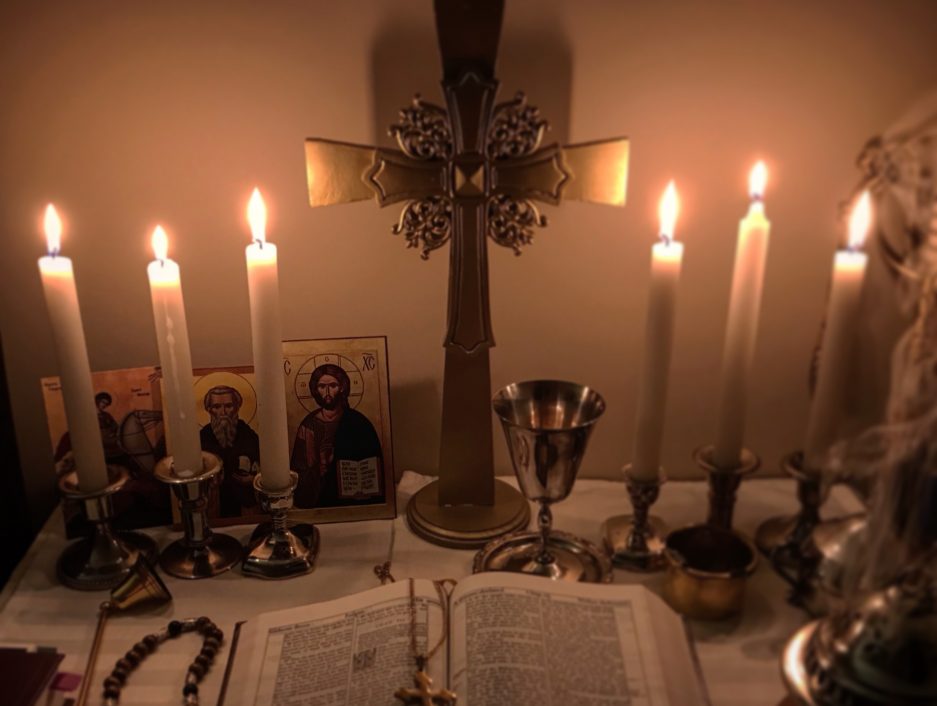I am a high-churchman, also called Anglo-Catholic. I would rate myself as a mid-high-churchman. There are certain aspects of Anglo-Catholicism (and the Oxford Movement) which just makes me uncomfortable, such as Mary worship, invocation of saints, adoration of the Eucharist; these are, as the 39 Articles of Religions state, Romish in doctrine and not founded in scripture. Also, while I admire the language of Latin, I believe that worship should be done in the vernacular, i.e. English. An occasional sprinkle of Latin is fine, but worshippers should know what is going on and not be lost in the liturgy.
I believe that liturgy remains an important aspect of church, continuing the traditions and history of the church is something important, as it reflects from where we came and those who worshipped before us. High church Anglicanism maintains the structure and formality in liturgy that I seek, formalism is a display of piety, and like dressing up for church, shows the proper respect for God. Additionally, keeping with traditional liturgy gives a sense of routine and allows me to know what is coming next. There is nothing worse than getting lost during a worship service because you don’t know what’s coming next, or change the sequence of events (i.e. change when the Lord’s Prayer is said or when the Gloria is sung or recited). (I will probably write a post about my pet peeves of Anglicanism, which includes my feeling that no two Anglican churches worship in the same manner, and attending a particular church for the first time will always result in some degree of confusion.)
I also feel low church/evangelical/contemporary services are too “loosey-goosey” and casual, which takes away from the sanctity and mystique of church. As some have heard me say, “once the guitars come out, I start walking out.” There is nothing wrong with less formal church services, and while others may prefer it, it is just not for me (I also won’t actually walk out of a service if they use guitars, that would just be plain rude).
I prefer the usage of the Book of Common Prayer, but not opposed to the Book of Alternative Services, and I understand that many prefer the contemporary language and not the archaic language found in the BCP. In contemporary Canadian Anglican churches, the higher high churches will typically use the BCP more often than lower churches.
I do like it when traditional vestments are worn for worship. It makes worship seem more sacred and formal. Though I understand due to financial issues, having vestments of all liturgical colours may be cost prohibitive, and I’m fine with just cassocks, albs, and surplices, which still gives a sense of tradition.

There are certain aspects of Anglo-Catholicism (and the Oxford Movement) which just makes me uncomfortable, such as Mary worship, invocation of saints, adoration of the Eucharist;
Maybe because these facets of Catholicism are misunderstood. They are there to help us grasp the hyper-reality of our relationship with the divine: The saints are people who are closer to us in history, many of them among the worst sinners, who managed to emulate Christ – read about the saints, find out which one you are, and what message they have for you.
From what I remember of Anglicanism, your church does mention something about the communion or the fellowship of saints. They are men and women who went before us, and overcame the struggles we face.
Regarding the Adoration of the Eucharist, I watched a dramatisation of Jesus’ story not long ago. It was a second-rate affair, but there was one line that stood out, as Jesus broke the bread during the Last Supper: ‘This is how you bring me back among you.’
The Eucharist takes on a very different meaning, if, like myself, you believe it literally is the flesh of Christ. Make Him part of you, and carry Him out into the world.
LikeLike
As I was brought up Methodist, part of me remains a Methodist at heart, which “conflicts” with hardcore Anglo-Catholicism.
I don’t believe in transubstantiation, I believe in the presence of Christ in the bread and wine, but the bread and wine hasn’t transformed into the literal flesh and blood of Christ. I choose not to “understand”/over think the change, but just accept the change/the mystery that happens (this is similar to how I come to terms with my belief in the Trinity). I still feel bad if communion wine is spilled, but it’s not the end of the world.
For me saints are people who because of their actions/beliefs/etc. are worthy of remembrance/commemoration by the church, I will attend communion services on red letter days in commemoration of such stains, but I rarely, if at all, invoke them in my personal prayers.
LikeLike